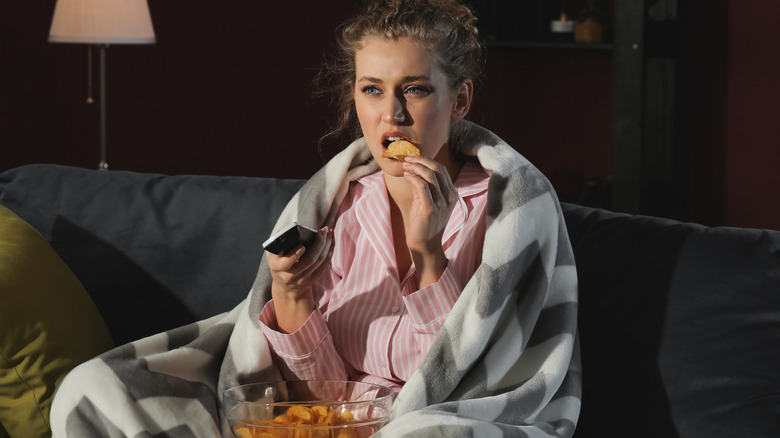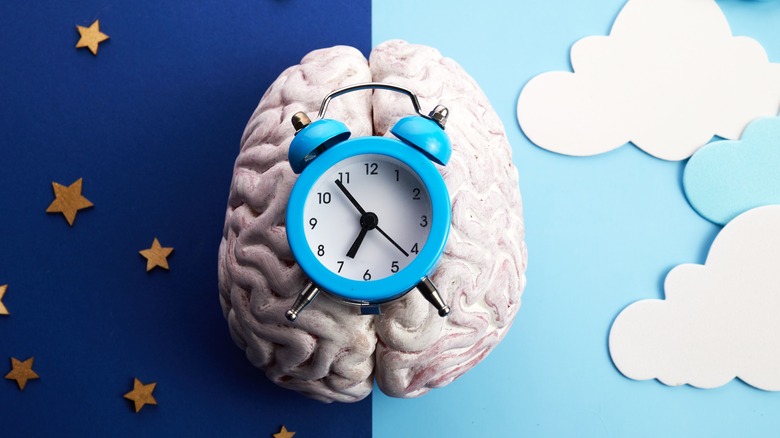Why Late-Night Eating Might Be Sabotaging Your Weight-Loss Plans
Previous research has linked eating late into the evening with weight gain (via Penn Medicine), but a new study from Science found a possible reason as to why this is. In the study, researchers fed two groups of mice a high-fat diet, with one group eating during the day and the other eating at night. Since mice are nocturnal, they typically sleep during the day. Those who ate during their inactive cycle, when they were supposed to be sleeping, gained more weight, as per a press release about the study.
When the researchers studied the endocrine system of genetically-enhanced mice, they found that creatine might be the link between the disruption of circadian rhythm and metabolism. Creatine releases energy from the fat within the tissues. Therefore, a high-fat diet disrupts the body clock, which then affects the body's ability to metabolize fat into energy.
"We need to figure out how, mechanistically, the circadian clock controls creatine metabolism so that we can figure out how to boost it," explained lead author and postdoctoral fellow at Northwestern's University Bass Lab, Chelsea Hepler.
Circadian rhythm and metabolism
Our body clock controls how our body stores and releases energy, according to a recent perspective in Science regarding the new study. Similarly, eating too much food bumps our body clock out of rhythm and can cause us to eat at the wrong times and sabotage our weight-loss efforts.
Stress can disrupt our circadian rhythm, and our body responds by increasing fat cells and insulin (via Weill Cornell Medicine). The circadian rhythm affects whether our bodies turn precursors of fat cells into fat cells. The experts at Healthline also say that what we eat later in the evening can contribute to weight gain. People who eat past 8 p.m. tend to eat more calories overall or choose unhealthy foods.
If stress, travel, or a late night disrupts your circadian rhythm, you can reset your body clock by establishing a consistent time you go to sleep and wake up, even on weekends, according to the Cleveland Clinic. Additionally, exercise can also restore your body clock because it boosts the production of melatonin, which helps balance your sleep-wake cycle. With that being said, try to avoid alcohol, caffeine, and any blue light from electronic devices before bedtime.


